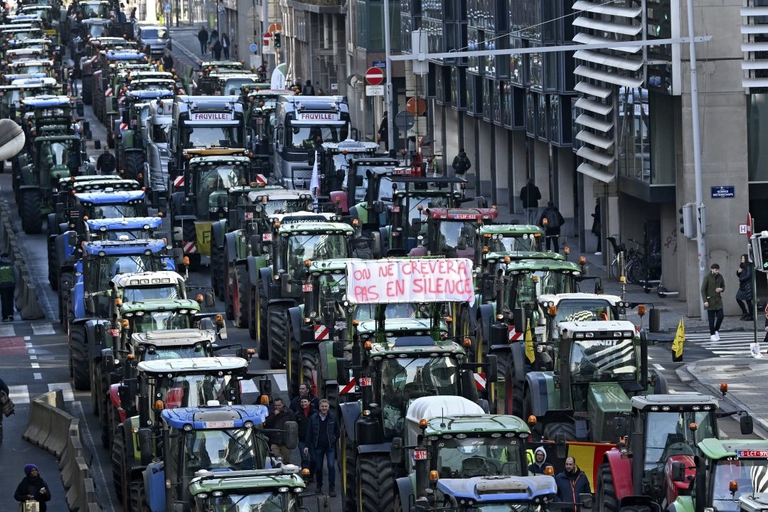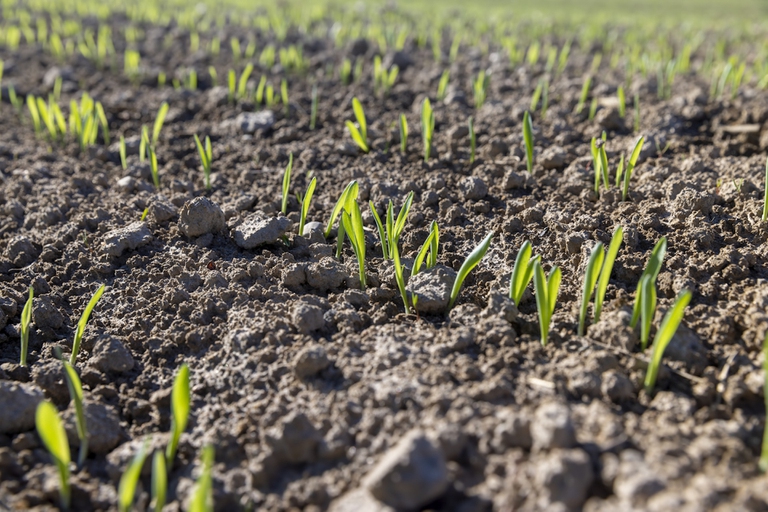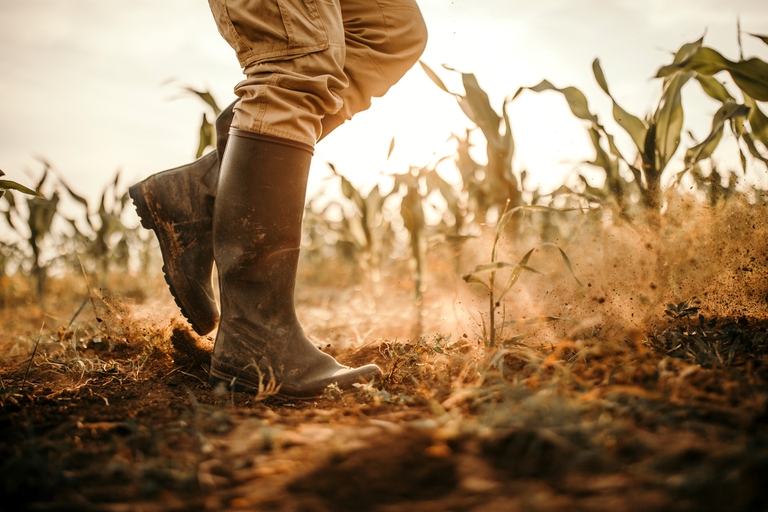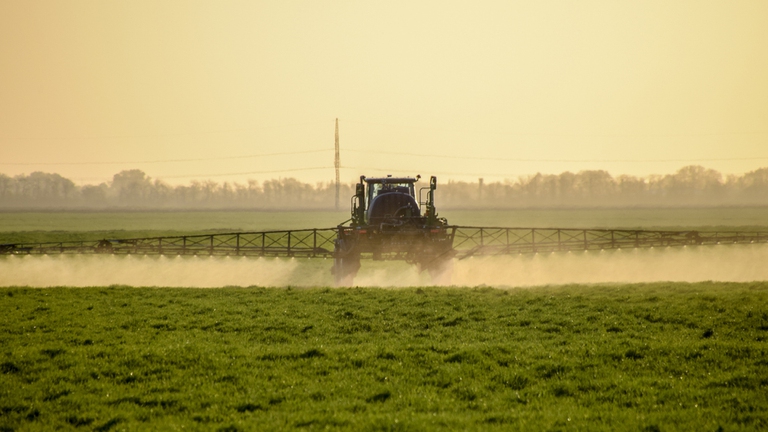https://www.lifegate.it/reddito-di-contadinanza
- |
- With the provocative title "Farmer's Income", Famiano Crucianelli's essay explains what the problems of agriculture are and how to address them.
- Fair wages for farmers, but also recognition of the socio-economic role of the countryside, training and food education.
- Putting agriculture back at the center means finding solutions for food security and climate change.
- The biodistrict is seen by Crucianelli as a place that puts the common good back at the centre, the community with agriculture as the first chapter to be addressed for an ecological transition that responds to global challenges.
“Agriculture should be the first chapter of any reasoning that wants to address the great questions of the future.This was not the case and today all the problems come to a head.Behind the new and exasperated 'tractor protests' there is this elementary truth":it is from this reflection that the essay develops Farmer's income, a text by Famiano Crucianelli, among the founders of Il manifesto, former parliamentarian, undersecretary for Foreign Affairs in the Prodi government, now president of Biodistrict of Via Amerina and Forre, in the Viterbo area, in Lazio.

Farmers' income and biodistricts:the interview with Famiano Crucianelli
The essay explains how in the agricultural world all the contradiction that passes between the world is reflected production of an essential common good, what is the food, and the rules of free trade.A contradiction that finds expression in the great economic difficulty of producers, In the demographic collapse of the countryside, in the'abandonment of rural areas and in the environmental crisis.
According to the author, to respond to the challenges of climate changes, from the food safety and of social cohesion, it needs to be put back agriculture at the centre and radically change the production system now based on the speculative and destructive logic of multinationals in the agro-industry which have poisoned the soil, have jeopardized its fertility and compromised the biodiversity.We explored this point of view in depth by interviewing Crucianelli.

How did the book come about?
Farmers' income is a wise fruit of personal experience as for a dozen years I have been involved in the construction of the Biodistrict of Via Armerina and Forre which was among the first in Italy.We are in an area to which I am emotionally attached because this is where I grew up, an area which today has been completely transformed by the intensive cultivation of Tuscia hazelnuts.The biodistrict is constituted as a garrison of the territory, starting from agriculture.
Is peasant income a play on words, a suggestion, a concrete proposal?
I would say a suggestion to reflect on in order to implement it in practice.We ask farmers to produce food in a certain way, healthy, high-quality, respectful of the environment, and at the same time to be custodians of the territory, but we cannot think that they do it for free.Support is needed.And the resources are there if we think about how much we could recover, for example, from the hidden social and environmental costs of food today.
Is it just an economic question?
Absolutely not.There are two other aspects on which to intervene:one concerns the need to restore social and cultural dignity to farmers and rural areas and guarantee them a future.We need to create a socio-cultural balance between city and countryside and this is evident from the estimates which predict that by 2050, 70-80 percent of the world population will live in metropolises.The other aspect concerns training that leads to a new question:in this sense I share, for example, Slow Food's appeal to make food education compulsory in schools.

What do you expect for agriculture from these European elections?
Nobody talks seriously about the problems of agriculture which is treated only in an instrumental way.I had hoped that the green deal and the farm to fork strategy would be documents widely shared by all parties, but instead in the wake of the self-harming protests of the tractors, steps have been taken backwards and the controversy against "environmentalist fundamentalism" has returned with farmers who are ended up serving their executioners.
I don't agree with the lobbyist, but I understand him, he's in his own interest.Politics should instead deal with the common good and make disinterested choices:it is scandalous that, for example, a sugar tax or a ban on advertising of certain foods or that glyphosate has not been renewed for another ten years is not achieved.

We must understand that agriculture is the crossroads through which food security and the fight against climate change pass and that the current production system based on monocultures and chemistry is leading to a loss of productivity and soil sterility.In the Po Valley there is less than 1 percent organic matter in the soil!We need an alliance between producers and consumers to create sustainable food systems.
What is the biodistrict for you?
The biodistrict is a social, environmental, economic laboratory, a possibility to give meaning to democracy and involve citizens by involving them and increasing their awareness on issues such as nutrition, separate waste collection, energy communities.It is a place that puts the common good back at the centre, the community with agriculture as the first chapter to be addressed for an ecological transition that responds to global challenges.

What do you hope for your territory?
I hope that biodiversity and crop diversification return to these places:there are some signs from some farmers who are returning to plant vines and olive trees.I hope that water will start flowing again in the streams, dried up by the intensive cultivation that has spread outside the areas of vocation.I hope the toads and goldfinches return.And in Lake Vico, where today the proliferation of red algae caused by chemical fertilizers releases toxins and deprives plants and animals of oxygen, I hope to see life return.
